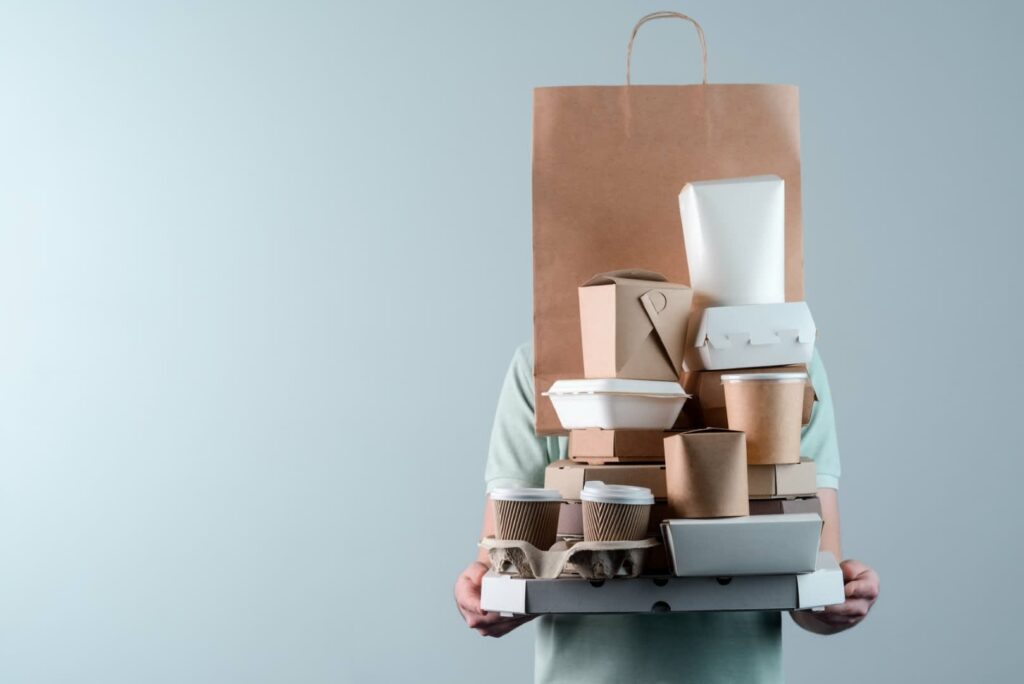Food is something we like to consume fresh. Ironically, that is true for processed food too. There are various food products and beverages that have a considerable shelf time. The food items or otherwise, when the products go to markets for businesses, they require some packaging.
The packaging industry introduces new and modern packaging solutions for different products regularly. For businesses that deal with food items or beverages, the packaging holds critical value. This blog helps understand and then implement essential design ideas in every food and beverage packaging box.
1. Brand Identity
Traditionally used for protection, packaging now serves a more nuanced role in today’s market. From custom deli paper to branded food packaging boxes, these materials are more than just containers; they’re extensions of a brand’s identity. While a company name is an essential touchpoint, more is needed to capture interest.
To amplify brand recognition, many businesses embrace personalized packaging and delivery paper with striking logos that echo their core values. When these logos grace various materials, including custom deli paper, they don’t just represent the brand – they enhance the customer experience, making product identification swift and fostering brand loyalty.
2. Architecture
When designing a box, it is essential to follow three main aspects to develop effective packaging for food. Innovation in all three of these principles helps create trendy and most impactful packaging boxes for food & beverages.
a) Form
There is a different form of packaging which different brands use with different products. However, it is not very practical to use one type of packaging with every food item. The industry mostly prefers synthetic packaging for raw food, which offers protection from external elements like light and air.
Furthermore, see-through packaging helps consumers estimate the freshness of food before purchasing it. On the other hand, processed food, paper, or paperboard packaging is more common. Likewise, for food with longer shelve time, there is a whole array of packaging styles like plastic packaging, glass bottles, or aluminum tin cans.
b) Function
The primary function of any packaging box for food & beverage is to protect the food. For this, ensuring reliability and strength in the custom boxes is quite necessary. However, this function is quite basic and needs no introduction. There are some other functions and abilities which you can add to the food & beverage packaging boxes.
Adding an indicator to tell the freshness of raw food can be such a function for food packaging. Some liquid cans use caps as measures for the same liquids. This is another example of an extra function to enhance the value of the food packaging.
c) Beauty
Finally, beauty is essential for retail products. for the products in the markets, making sales is all about attracting customers. For food & beverages, the packaging needs to have an aesthetic appeal. It is quite possible to make the box style and form beautifully. With the help of colors, inducing beauty in anything is possible.
Therefore, the packaging industry offers custom printed food & beverage boxes to offer beautiful packaging for brands to use. Evidently, playing with colors and different patterns can help develop an outstanding appeal in the box’s outlooks.
3. Packaging for Content
The versatility in the packaging helps create precise packaging for every food or beverage that requires packaging. To make the packaging perfect for the food, it is always necessary to design the food products’ packaging. For instance, using the packaging box for the raw meat is not a very practical choice.
However, using a cardboard box for the packaging of processed corn inside a plastic bag becomes practical. Therefore, always go for the packaging, which justifies the content inside the packaging.
4. Simplicity
Making food packaging simple can attract more customers to the business. For food packaging, which is of high quality yet simple, customers can perceive the food’s natural essence. Too much going into the personalized food & beverage boxes can relate a sense of processing to the food products.
5. Limited Editions
It is possible to have different types of packaging solutions for one product. For retail foods and beverages, custom packaging consumes much precedence. Offering limited edition packaging for the food you sell adds a charming appeal to the products. Now and then, choose limited-edition food & beverage packaging boxes to keep your consumers interested.
6. Highlight the Benefits
For food products, it is essential to follow some guidelines set for retail packaging and marketing. The brands that sell food items usually use useful information and their products’ benefits to market them. With packaging, it becomes convenient to educate the consumers regarding the benefits of using your products.
Highlighting the benefits of the food product you sell, you tell consumers why to prefer the products from y our brand. Besides that, there is much information regarding foods and beverages which they need to deliver to the consumers for their safety. For instance, the ingredients for processed foods are critical to mention on the food packaging.
Using printing services in the USA, it is possible to put any information on the custom food boxes.
7. Hiring a Capable Packaging Provider
Designing a box for food packaging all by yourself is possible. However, getting expert help and opinion always ensure the most practical solutions. In the united states of America, plenty of options for packaging boxes are available. For brands and companies looking for wholesale food packaging, Plus Printers is the best option.
They ensure superior quality for each packaging box you get though their custom boxes wholesale deals. Besides retail, shipping boxes for food & beverages are also quite easy to get when you get in touch with Plus Printers.
Finally, to order food & beverage boxes in any number, please dial 1-818-476-7382 today. Food delivery boxes and food retail packaging boxes make them all with the highest quality standards in the industry.
